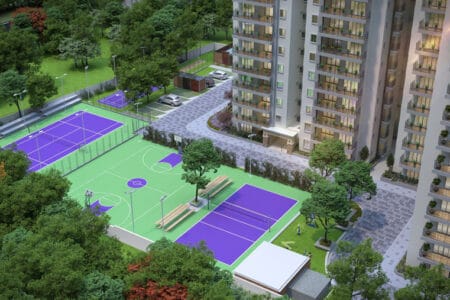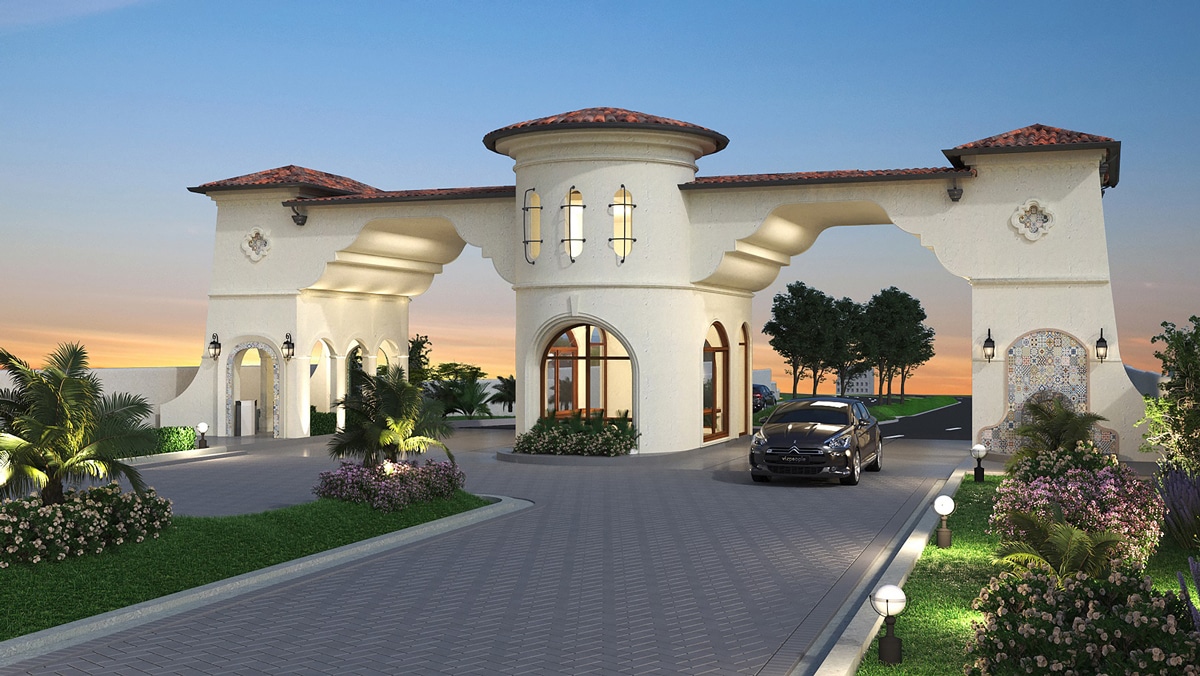Your author (DM) talks with Vikram Chari (VC), founder and CEO of SmartOwner, about the effect of the pandemic on different segments of the real estate market and the significance of VT.
DM:How are real estate investments faring in the pandemic? What are the challenges and opportunities offered by SmartOwner?
VC: Real estate in India is not monolithic in nature, and the performance of investments in the sub-segments has been dependent on quite a few factors, including the demand-supply dynamics in the city and micro-market, the median household incomes and the cost of properties. Even during the pandemic, these factors have played a vital role, and the sub-segments have experienced varied impact.
Retail and Hospitality
Physical retail, malls, multiplexes and hospitality have been impacted the most during the pandemic and may take a couple more quarters to start on their recovery path. At the same time, with quite a few consumers in Tier 1 cities shifting their shopping preferences to e-commerce platforms, warehousing and logistics assets have done exceedingly well and may continue to in the foreseeable future. The hospitality sector that was largely dependent on events, corporate and business travelers may also take a few more quarters to show signs of recovery.
Commercial
Work from home has largely been a stop-gap arrangement for most large global firms to tackle the COVID-19 outbreak and ensure the safety of their employees. Physical offices will continue to be key to their strategies to promote in-person collaboration, employee well-being and ensure productivity, in addition to attracting new talent. The pandemic has largely impacted retail coworking centers that were dependent primarily on short-term flexible contracts from their tenants. For fully leased office buildings, COVID-19 has not had much of an impact, as the lease protected the asset, and large tenants do not wish to put forth the effort and time involved in finding new offices after a few months to get most employees back to workplaces. However, for unleased space, especially in newer buildings, COVID-19 has resulted in a longer-than-expected time to find tenants as decisions have been postponed. It may be another year or so before leasing activity returns to its normal rate, assuming the vaccination program is implemented well and a third wave is avoided.
Residential
Over the past year, people throughout the country spent an extended period in the confines of their homes. This made them realize they needed additional space for working and for children to attend online classes with limited distractions. As soon as the first set of nationwide lockdown restrictions was eased last year, an interesting trend that emerged was the rise in demand for more spacious and well-designed homes. Requirements for larger, better-designed homes within communities that offered a wide range of outdoor amenities and spaces have only grown rapidly since, giving the residential sector the required impetus to surge ahead. As a result, developers with a design-focused business model have started gaining prominence and will do better than traditional developers who focus on achieving scale through cookie-cutter designs. Cities like Bangalore, which has a workforce driven by knowledge-based workers, higher median household income and relatively less expensive properties, have done well during the pandemic, and will continue to do so in the future.
About Vikram Chari

Vikram Chari is the CEO and founder of SmartOwner. He started the company as a property investment management firm and marketplace with the aim to bring a Silicon Valley-like culture of transparency and ethical client-orientation to a traditional industry like real estate. He recently expanded SmartOwner’s footprint to include real estate development management. In the past, Vikram founded and ran CCH USA LLC, a large real estate investment company in Arizona. Vikram holds a Juris Doctor from the University of California, Davis.
At SmartOwner, our investments in the commercial sector have largely been in managed offices with large-enterprise tenants, which have remained unaffected by the pandemic. In the residential sector, our investments have been across key micro-markets in Bangalore in projects that offer superior architecture and design along with a wide range of amenities, features that are extremely important for a buyer in the COVID world. While the lockdowns did affect development and sales activities, we expect the impact to be short term. The range of products offered at SmartOwner caters both to investors looking for financial investments in real estate and end users looking at homes that offer all the features mentioned earlier through our in-house development management arm Prime One Corp.’s projects.
DM: How has the pandemic influenced real estate occupancy, including purchase and rental preferences, in terms of size, total space or area, configuration, location and facilities?
VC: The pandemic has triggered a demand for homes that offer more indoor space through superior design, along with a wide range of outdoor amenities. Homes now have a requirement to be not only spacious but designed to provide adequate privacy for family members to perform their work and other activities without disturbing each other. People who were looking for a home pre-pandemic are currently updating their expectations with at least one more bedroom than previously required, along with an abundance of usable outdoor amenities. They are also willing to look at well-designed homes in the peripheral areas of cities if their budgets do not meet the purchase price of such homes in central locations.
In the grade A offices segment, tenants are expected to increase the average per workstation space utilization in India from 55-60 to more than 100 ft2. Additionally, managed offices that cater to enterprise tenants and are located closer to residential localities are also expected to be in demand, in line with the hub-and-spoke office strategies of large firms.
DM: What is the importance of branded lifestyle amenities including elevators and escalators manufactured by reputed OEMs when it comes to aspects like demand, value appreciation and Return on Investment (RoI)?
VC: The quality of specifications used in a project, be it electrical, mechanical or bathroom fittings, has a direct impact on those using these specifications in the long run. This is also very true of amenities such as elevators and escalators, which are used extensively and require long-term durability. And since elevators are among the most visible aspects of a building, the brand and design directly impact the perception of the building by tenants and visitors. Because of this, in all of the projects managed by SmartOwner’s in-house development management arm, Prime One Corp., the elevators are procured from leading brands.
DM: How do professional property management and maintenance also play a role in this regard, given that elevators are being used more during the pandemic due to limited passengers per trip?
VC: A limited number of passengers per trip and periodic sanitization of elevators are the minimum standards expected. Enforcement of these protocols and standards is only feasible when professional management is engaged in these activities. With most customers factoring pandemics into long-term planning, the quality of maintenance of both offices and residential communities has become a factor in their decision-making. Properties that have professional facilities management will invariably have an edge over the others that don’t, and are bound to witness higher customer demand.
DM: In what way can individuals maximize profits on real estate investments? What are the do’s and don’ts that you would recommend they follow?
VC: Real estate has historically been a safe and secure investment asset class, and the events around the pandemic have only cemented the significance of this asset class in one’s portfolio. However, one needs to carefully evaluate various factors before embarking on the journey of laying the foundation of one’s portfolio through real estate investments:
- Select the segment and type of investment best suited to one’s portfolio: Investors need to understand the various sub-segments within commercial and residential real estate clearly and the plusses and minuses of investing in either. For example, commercial properties may be more sought after by high-net-worth individuals (HNIs), but they require higher capital investment unless one is looking at investing through financial instruments such as real estate investment trusts (REITs), alternative investment funds (AIFs) or debentures of carefully curated projects. Residential properties, on the other hand, are a lot more accessible to most investors for self-occupancy, as well as for investment.
- The city and location need to be chosen wisely: If the intended purchase is purely for an investment and not for self-occupancy, one needs to understand that real estate in India isn’t monolithic, and micro-market and city-specific dynamics are to be evaluated carefully to ensure long-term asset performance. One needs to look at cities that have the right combination of knowledge-based workforce and relatively lower cost of real estate. Some of the key factors to evaluate thoroughly in a city for residential-sector investments are population and demand growth and growth in household income levels. These factors not only help in demand and price growth but also reduce the riskiness of the investment in the city by enabling absorption of supply consistently. After the selection of a city, one needs to consider micro-markets that are closer to knowledge-based jobs and have easy access to socio-cultural amenities such as good schools, hospitals and malls and also have excellent connectivity to all parts of the city.
- Architecture, design, quality and amenities are key aspects: With demand for homes that offer more indoor space through superior design, along with a wide range of outdoor amenities already evident in the market today and growing further, these need to be non-negotiable parameters for investors to select the right investment in real estate. Quality of specifications and fittings are also vital in the properties being considered for investment. New age developers who are design-oriented in their business model may be able to provide superior investor value compared to the traditional ones focused more on achieving scale at the cost of design.
- Look for transparent pricing: One needs to look at projects by developers who offer transparency and fairness in their pricing and where prices are linked to the value of the underlying units only. This will ensure a level playing field whether one is looking to buy or sell at a later date.
- Real estate investments need time to perform: While real estate is a stable and safe asset class, one also needs to understand that it is relatively less liquid in comparison with fixed deposits. The second wave of the pandemic also made it imperative for everyone, be it individuals or large companies, to factor such events into their long-term planning. With sufficient time on hand, real estate can offer the perfect safety and security one is looking to create in their investment portfolio.








Get more of Elevator World. Sign up for our free e-newsletter.









